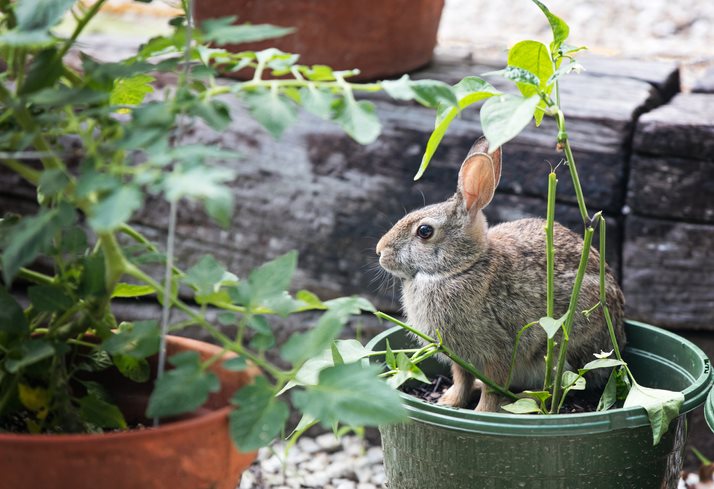Perspective
How to keep wildlife from eating your garden
May 25, 2022
by PEMCO Insurance
How to keep wildlife from ruining your yard
It’s not too late to save your landscaping from rabbits, squirrels, deer and other wildlife that view it as an all-you-can-eat buffet. And fortunately, you can do it without making your yard inhospitable to beneficial birds and insects.
How can I discourage wildlife from foraging on my plants?
Use a combination of techniques to protect different areas of the yard:1) Don’t feed birds or squirrels. The artificially abundant food supply creates an unhealthy dependence on humans, leading to overpopulation and the spread of diseases like bird flu. It also encourages nesting in your home (contamination, gnawing, ruined insulation) and can attract unexpected and potentially dangerous wildlife like bears looking for an easy meal.
2) Choose unappetizing plants. Sturdy native plants (like Oregon grape, sword fern and spruce) are naturally more wildlife resistant than many nursery plants. Prickly, tough or strongly scented shrubs like holly, barberries, juniper, boxwood, lavender, mint and sage discourage browsers. Rabbits and deer also are likely to pass by flowering plants like red hot poker, black-eyed Susan, poppies, daffodils, iris, marigolds and snapdragons.
3) Create barriers. Chicken wire or hardware cloth can keep out browsers, although you may need to bury the wire a bit to discourage rabbits and bulb-eating squirrels from digging under it. Netting can help protect berry bushes.
4) Use motion-activated sprinklers. Sprinklers that go off when they detect movement startle deer and help break unwanted browsing habits.
5) Use scents that are unpleasant to animals. Animals usually avoid capsaisin, the “hot” in chili pepper, and the smell of blood meal fertilizer (apply carefully, since too much could burn your plants and it may sicken your pets if they eat it). You also can try commercially made predator-mimicking scents, however, they can be off-putting to people, too. You’ll need to reapply the scents after rain or watering.
6) Get help if you need it. If your backyard visitors are burrowing under your home, breaking down fences or acting aggressively toward pets or livestock, talk to your county’s extension office. They may refer you to services that can help you manage the problem.
Check out How to create your water-wise Northwest garden and Revive your parched lawn, add a layer of wildfire defense.
Share on social media